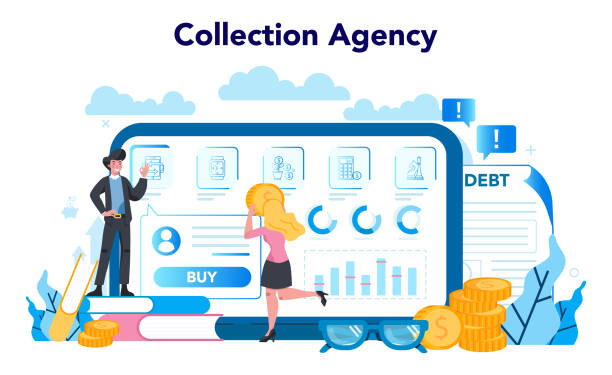In today’s financial landscape, managing outstanding debts efficiently is crucial for businesses of all sizes. Whether you are a financial institution, a utility provider, or a retail business, recovering unpaid debts can be a time-consuming and challenging process. To tackle these challenges, many organizations are turning to debt collection software to streamline their recovery efforts, improve efficiency, and enhance customer relationships.
Debt collection software is designed to automate and optimize the debt recovery process. It helps businesses manage delinquent accounts, track communications, schedule follow-ups, and maintain compliance with regulatory standards. With the right debt collection software, companies can significantly reduce manual effort, minimize errors, and recover outstanding debts faster and more effectively.
What is Debt Collection Software?
Debt collection software is a specialized tool that automates the process of managing overdue payments and engaging with delinquent customers. It provides features such as case management, communication tracking, payment scheduling, reporting, and analytics. By using debt collection software, organizations can monitor the status of outstanding accounts in real-time, prioritize collections efforts, and make more informed decisions based on customer behavior and payment history.
A good debt collection software solution also ensures that businesses stay compliant with debt collection laws and regulations, such as the Fair Debt Collection Practices Act (FDCPA) in the United States or similar regulations elsewhere. This minimizes the risk of legal issues and protects the organization’s reputation.
Key Features of Debt Collection Software
An effective debt collection software package typically includes a range of features aimed at making the collection process more efficient and transparent:
- Automated Workflows
Automation reduces the need for manual intervention by automatically sending payment reminders, follow-up emails, or SMS messages based on customer behavior and account status. - Case Management
Easily manage each delinquent account with detailed customer profiles, payment histories, notes, and interaction logs to keep all relevant information organized in one place. - Communication Tools
Integrated communication channels, such as emails, SMS, and phone call logging, enable seamless interactions with customers and help maintain a consistent follow-up process. - Payment Plans and Portals
Allow customers to view their outstanding debts and make payments conveniently through online portals, with the option to set up custom payment plans that match their financial situations. - Compliance and Security
Ensure compliance with industry regulations and data protection laws with secure data storage, audit trails, and regulatory updates integrated into the system. - Reporting and Analytics
Track collection success rates, agent performance, customer response rates, and more through customizable dashboards and detailed reports.
Benefits of Using Debt Collection Software
Implementing debt collection software offers a wide range of benefits that can transform the way businesses manage overdue accounts:
- Increased Efficiency
Automation of repetitive tasks like follow-up reminders and status updates frees up valuable staff time, allowing them to focus on higher-value activities like negotiating settlements or setting up payment plans. - Improved Recovery Rates
With real-time data analysis, strategic account prioritization, and timely communication, businesses can improve their overall recovery rates. - Better Customer Experience
Debt collection doesn’t have to be adversarial. Professional, consistent, and respectful communication through debt collection software helps maintain customer relationships and encourages faster payments without damaging your brand’s reputation. - Reduced Operational Costs
By automating manual processes, businesses can lower administrative costs, reduce reliance on third-party collection agencies, and improve profitability. - Enhanced Compliance
Keeping up with constantly changing regulations is easier with built-in compliance checks and audit trails, reducing the risk of legal actions and fines. - Data-Driven Decision Making
Access to real-time analytics and performance metrics helps businesses refine their collection strategies, focusing on what works best and adjusting their approach when needed.
Choosing the Right Debt Collection Software
When selecting a debt collection software solution, businesses should consider a few important factors:
- Scalability: Choose a system that can grow with your business and handle increased account volumes as needed.
- Customization: Look for software that can be tailored to your specific collection workflows, regulatory environment, and customer engagement strategies.
- Integration: Ensure the software can easily integrate with your existing accounting systems, CRM platforms, and payment processors.
- User Experience: A user-friendly interface will ensure faster adoption by your team and reduce training time.
- Customer Support: Opt for a provider that offers excellent customer service and regular software updates to keep your system secure and up-to-date.
The Future of Debt Collection Software
The future of debt collection software is closely tied to technological advancements like artificial intelligence (AI), machine learning (ML), and predictive analytics. AI-powered chatbots can handle initial customer interactions, answer common queries, and even negotiate simple payment plans. Predictive analytics can forecast the likelihood of repayment based on customer behavior, enabling more targeted collection strategies.
Moreover, mobile-first and self-service options will continue to expand, giving customers greater control over how they settle their debts while reducing the burden on collection teams.
As businesses continue to adopt digital transformation strategies, investing in advanced debt collection software will be crucial to staying competitive, compliant, and efficient.
Conclusion
Debt recovery is a critical aspect of maintaining a healthy cash flow and sustaining business growth. Adopting debt collection software allows businesses to automate their processes, improve efficiency, and recover more debts while maintaining positive relationships with their customers. With the right solution in place, organizations can transform their collections operations, reduce costs, and ensure compliance, all while preparing for the future of digital finance.



